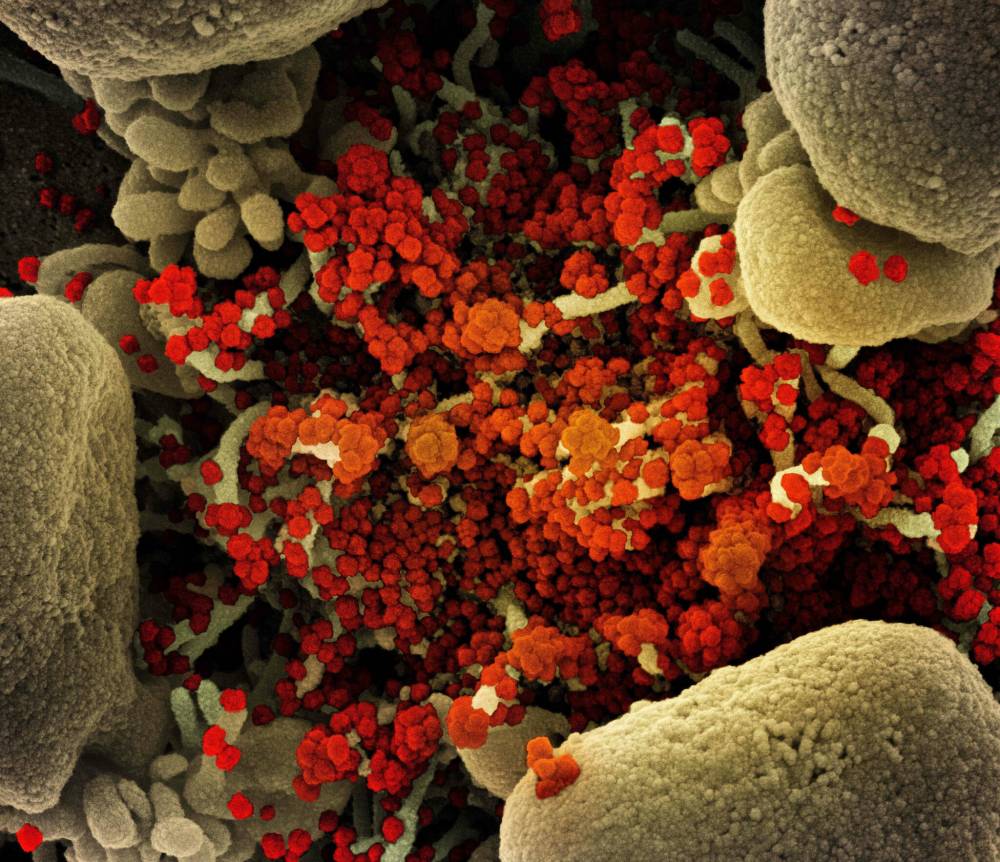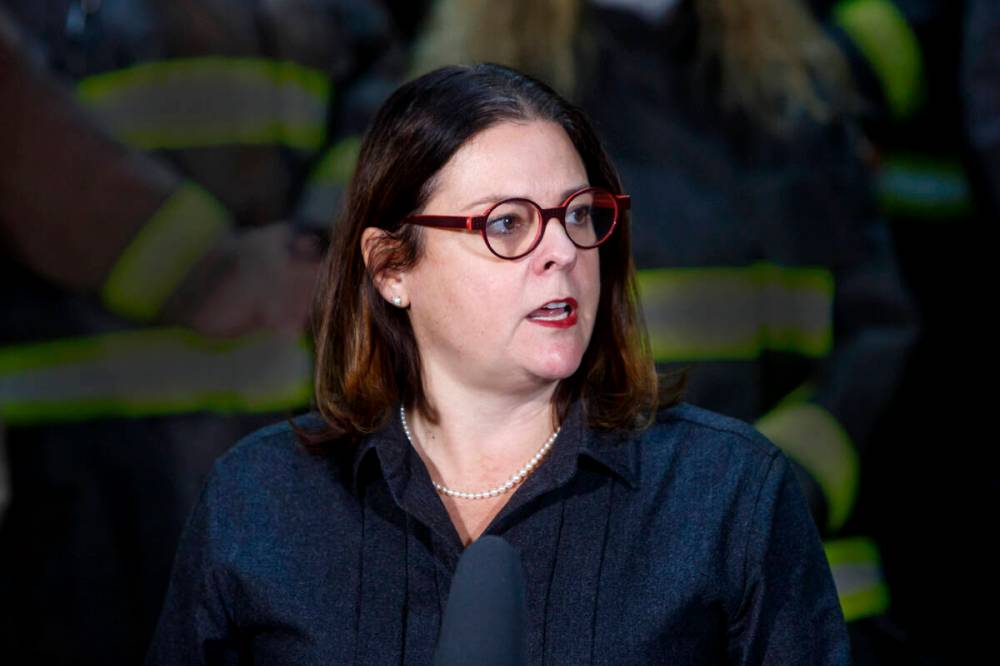Manitoba moves to reduce large gatherings as Omicron gathers steam
Province set daily high for new COVID-19 cases on Christmas Day
Advertisement
Read this article for free:
or
Already have an account? Log in here »
To continue reading, please subscribe:
Monthly Digital Subscription
$0 for the first 4 weeks*
- Enjoy unlimited reading on winnipegfreepress.com
- Read the E-Edition, our digital replica newspaper
- Access News Break, our award-winning app
- Play interactive puzzles
*No charge for 4 weeks then price increases to the regular rate of $19.00 plus GST every four weeks. Offer available to new and qualified returning subscribers only. Cancel any time.
Monthly Digital Subscription
$4.75/week*
- Enjoy unlimited reading on winnipegfreepress.com
- Read the E-Edition, our digital replica newspaper
- Access News Break, our award-winning app
- Play interactive puzzles
*Billed as $19 plus GST every four weeks. Cancel any time.
To continue reading, please subscribe:
Add Free Press access to your Brandon Sun subscription for only an additional
$1 for the first 4 weeks*
*Your next subscription payment will increase by $1.00 and you will be charged $16.99 plus GST for four weeks. After four weeks, your payment will increase to $23.99 plus GST every four weeks.
Read unlimited articles for free today:
or
Already have an account? Log in here »
Hey there, time traveller!
This article was published 27/12/2021 (1448 days ago), so information in it may no longer be current.
Manitoba government efforts to curtail crowds in the face of soaring COVID-19 case numbers were met with profound disappointment, as critics and physicians called for stricter measures to spare the health-care system from the Omicron variant.
Chief provincial public health officer Dr. Brent Roussin said large public gatherings across the province would be restricted as of Tuesday, after Manitoba broke its single-day record for new cases and a Christmas weekend in which eight pandemic deaths were recorded.
“We’ve now introduced and expanded orders twice since Omicron being in Manitoba, so we definitely feel it’s urgent,” Roussin said Monday, as public health reported 2,154 new infections over a three-day period — including a record-setting 785 on Christmas Day, 694 on Boxing Day, and 675 on Monday.

“It’s difficult to predict the exact impact Omicron will have on our health-care system but we know we need to be prepared for that,” the doctor said. “We know we can’t rely on some of the reports of Omicron being less severe.”
The new rules include capping everything from gyms to restaurants to churches to movie theatres to either 50 per cent of regular capacity or 250 people, whichever is lower. Bars and restaurants will also have to stop serving alcohol by 10 p.m.
Roussin said the new orders were focused on reducing large gatherings, as about 75 per cent of newly reported cases are the highly infectious Omicron variant of concern.
There also remains a substantial testing backlog of more than 11,500 swabs, Roussin added, with the number of cases the province reported over the weekend presumed to be a significant under-count.
Critical care physician and anesthesiologist Dr. Eric Jacobsohn characterized the provincial government’s approach to the surge in infections as a “significant gamble” and said stricter measures were needed to protect critical health-care services.
Last week, Jacobsohn was one of 10 physicians who penned a letter warning the public that without a significant reduction in person-to-person contact the province’s health-care system would be overrun by severe COVID-19 cases, driven by Omicron.
“The stakes were clear to Manitobans in the third wave. The public health-care system failed them to the point where they mobilized the military and flew patients to other places in the country for care,” Jacobsohn said.
“Surely, politics aside, it makes sense to radically reduce (contacts) to see how the land lies in the next two weeks,” he added. “The downside of not doing that, is potentially paying with patients’ lives.”
Roussin defended the latest round of orders, which are in force until Jan. 11, as keeping with other Canadian provinces. He said the new rules will translate into a significant reduction in potential stress on the health-care system.
However, his office continues to monitor rates of COVID-19 admission in jurisdictions where Omicron is dominant, given reports the strain may cause less-severe illness.
“We need to be cautious right now,” Roussin said, adding even with a dramatic decrease in severity, current case counts will still put quite a strain on the health-care system. “If that does hold true, then certainly that’s going to be quite helpful in our jurisdiction, but we can’t rely on that.”
As of Monday, 158 people were in hospital being treated for COVID-19, including 25 in intensive care. According to Shared Health, there were 88 people in ICUs across Manitoba for both COVID-19- and non-COVID-19-related illness.
On average, about 1.5 per cent of all COVID-19 cases in Manitoba have been admitted to intensive care through the pandemic. Over the past week, the province has reported an average of 586 cases a day.
Jacobsohn said the government cannot dismiss the potential for a significant impact on critical care units, given a large number of Manitobans remain unvaccinated while others have underlying health conditions that make them more susceptible to landing in a hospital bed.

“Most people who work within the system would say the only prudent way to follow is to play the safe card here, which is the unpopular card for all of us, and it’s a much stricter lockdown,” Jacobsohn said.
Opposition NDP Leader Wab Kinew called for tighter public health restrictions and described Monday’s announcement as “risky.”
“It seems as though the (governing) PCs are gambling with our health-care system, that our health-care system will be able to withstand this surge of Omicron, and that’s just not a sector of our society that we should be rolling the dice with,” Kinew said.
Without a stronger approach to public health measures, Kinew said both the health-care and education systems are being put at risk.
“If we don’t take those steps now, it seems we’re just increasing the risk later on in January or perhaps February of seeing increased disruptions.”
Meanwhile, Premier Heather Stefanson — who addressed the public at the news conference Monday, after leaving Dec. 24th’s COVID-19 briefing up to Roussin and Health Minister Audrey Gordon — said her government has been taking steps to adequately prepare for any surge in critical care admissions.
Stefanson said her government is working with other provinces to see how critical care resources can be shared if necessary, and discussions are ongoing with the federal government for additional support.
To date, eight critical care nurses with the Canadian Red Cross have been deployed to Manitoba. Stefanson said the province is in conversation with Ottawa to further boost its nursing numbers.
“Considerable work has been done over the last several months to prepare for this, but we’ll continue to obviously work with Shared Health and work across the system to see how we can make those improvements so that we have a health-care system that’s there for Manitobans when they need it,” the premier said.
— with files from Dylan Robertson
danielle.dasilva@freepress.mb.ca
Changes to public health orders

Our newsroom depends on a growing audience of readers to power our journalism. If you are not a paid reader, please consider becoming a subscriber.
Our newsroom depends on its audience of readers to power our journalism. Thank you for your support.
History
Updated on Monday, December 27, 2021 3:37 PM CST: Updated after news conference.
Updated on Monday, December 27, 2021 5:07 PM CST: Corrects to say bars and restaurants must stop serving liquor at 10 p.m.
Updated on Monday, December 27, 2021 6:54 PM CST: Updates headline, subhead, adds sidebar and writethru

